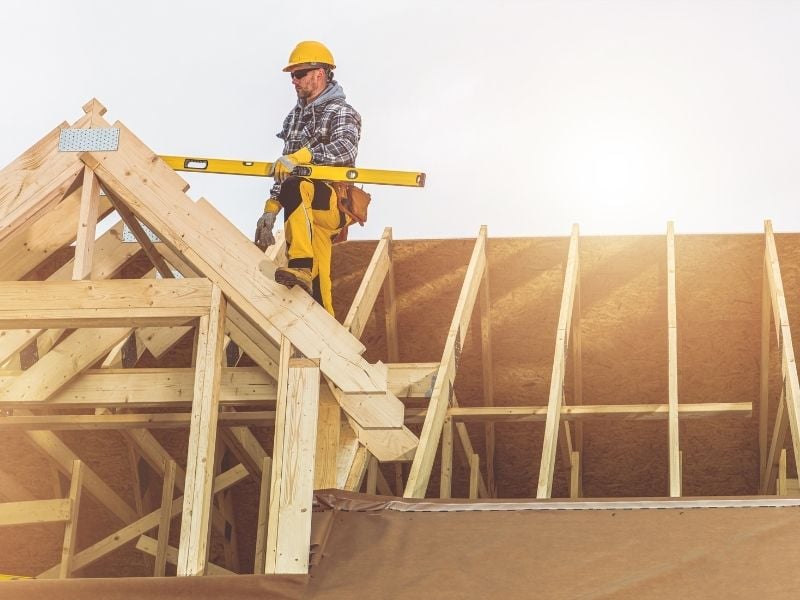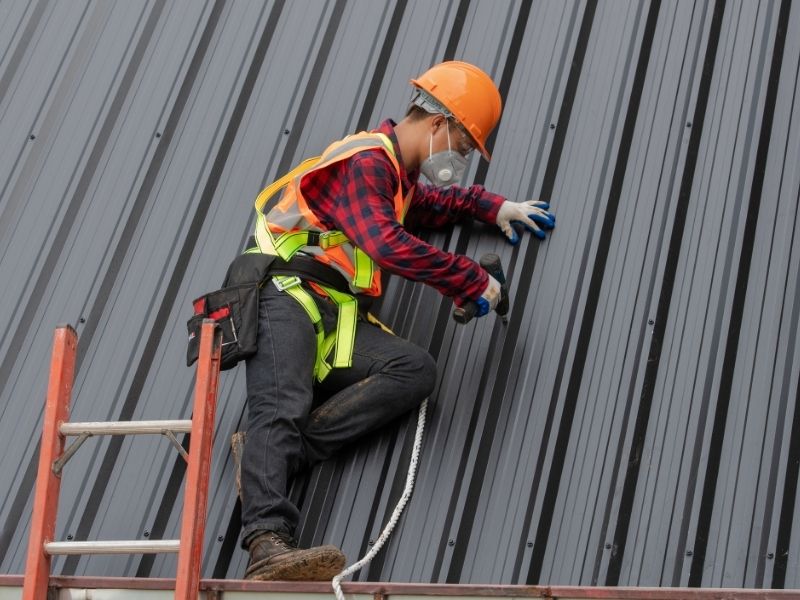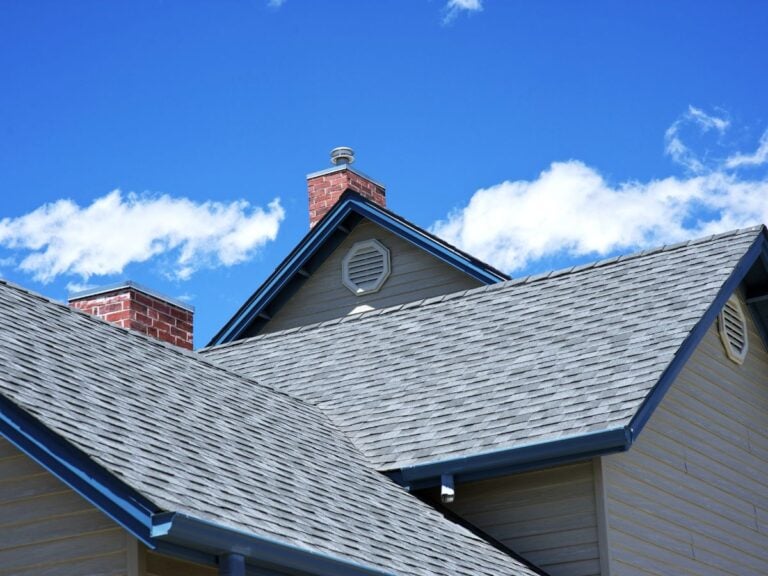Your roof protects everything beneath it, your family, your possessions, your peace of mind. Choosing the right professional becomes critical when repair or replacement time arrives. Unfortunately, the roofing industry attracts both skilled professionals and opportunistic scammers.
Saratoga County homeowners face specific challenges. Harsh winters bring heavy snow loads, while summer storms unleash damaging winds and hail. Many local homes feature historic architecture requiring specialized care. These factors make understanding how to choose a roofing contractor absolutely essential.
This guide covers essential credentials, warning signs, and practical steps to protect your investment. You’ll gain the knowledge to make informed decisions and avoid costly mistakes.

Key Takeaways
- Verify licensing and insurance before signing any contract—this protects you from liability and confirms professional legitimacy
- Get multiple written estimates from local contractors to compare pricing, materials, and project timelines
- Watch for red flags like unusually low bids, pressure tactics, large upfront payments, and door-to-door solicitations
- Check local references and reviews across multiple platforms to verify reputation and work quality
- Understand warranties on both materials and workmanship to protect your long-term investment
- Choose local contractors with established presence in Saratoga County who understand regional weather patterns and building codes
Overview
Selecting the right roofing contractor requires verifying credentials, evaluating local experience, and checking reputation. Confirm proper licensing and insurance coverage, including general liability and workers’ compensation. Local Saratoga County contractors understand regional weather challenges and building codes.
Get at least three written estimates comparing pricing, materials, timelines, and warranties. Research contractors through online reviews, Better Business Bureau ratings, and local references. Watch for red flags: pressure tactics, large upfront deposits, unusually low bids, and storm chasers lacking proper credentials.
Understanding Licensing and Insurance Requirements
Before working with any roofing professional, verify their credentials. In New York State, contractors need municipal-level licensing rather than state licensing. Each city or county maintains its own requirements.
Essential verification steps:
- Ask contractors for their license number
- Contact your local Saratoga County building department to confirm validity
- Check for complaints filed against the contractor
- Request certificates of insurance
- Call insurance companies directly to verify active coverage
Every legitimate contractor must carry two types of coverage: general liability insurance and workers’ compensation. General liability protects your property during the project. Workers’ compensation covers crew member injuries. Without both, you could face lawsuits if someone gets hurt on your property.
Typical residential projects require at least $500,000 in general liability coverage. Licensed and insured contractors cost more than unlicensed workers, but this investment protects you legally and financially. When contractors cut corners on credentials, they’ll cut corners on your roof too.
Evaluating Experience and Local Expertise
Roofing in Saratoga County differs significantly from warmer climates. Heavy snow accumulation, freeze-thaw cycles, and ice dam formation create specific challenges. You need a contractor who understands these regional factors and knows how to choose a roofing contractor with relevant local experience.
Questions to ask:
- How long have you worked in Saratoga Springs and surrounding areas?
- Can I see examples of completed projects in my neighborhood?
- What experience do you have with my home’s architectural style?
- Do you hold manufacturer certifications?
Many Saratoga homes feature Victorian, Colonial, or Craftsman architecture. Historic homes require special techniques to preserve character while meeting modern performance standards. Ask potential contractors about their experience with similar architectural styles.
Specialized certifications from major manufacturers like Owens Corning or CertainTeed demonstrate advanced training. Certified contractors typically offer enhanced warranties and have proven their knowledge through rigorous testing. Drive by previous projects to evaluate workmanship quality firsthand.
Getting Multiple Written Estimates
Never accept verbal quotes or handshake agreements for roofing work. Professional contractors provide detailed written estimates that protect both parties and prevent misunderstandings.
Contact at least three local contractors for estimates. This comparison reveals average pricing and helps identify unusually high or suspiciously low bids. Multiple estimates also allow you to evaluate different approaches and communication styles.
A comprehensive estimate includes:
- Material specifications with brand names and product lines
- Labor costs broken out separately
- Timeline from start to completion
- Payment schedule with reasonable deposit requirements
- Warranty information for both materials and workmanship
During the estimate process, contractors should inspect your roof thoroughly. Quick drive-by quotes without climbing onto the roof indicate lack of thoroughness. Professional estimators take measurements, check for hidden damage, photograph problem areas, and explain findings clearly.
Beware of estimates that expire within 24 hours or require immediate commitment. Legitimate contractors understand that homeowners need time to make informed decisions when learning how to choose a roofing contractor.
Recognizing Red Flags and Scam Tactics
The roofing industry unfortunately attracts scammers who exploit homeowners during vulnerable moments. After severe storms, “storm chasers” flood affected areas offering quick repairs at discounted rates. These contractors typically lack proper licensing and disappear before warranty issues arise.
Major warning signs:
- Door-to-door solicitations claiming they noticed roof damage
- Unusually low bids compared to other estimates
- Large upfront deposits (50% or more)
- No physical business address or branded vehicles
- Pressure tactics and limited-time offers
- Refusal to provide written contracts or proof of insurance
- Claims of “leftover materials” from nearby jobs
Unusually low bids suggest corners will be cut somewhere. Contractors might use inferior materials, skip proper preparation, or employ untrained workers. What seems like savings initially becomes expensive when the roof fails prematurely.
Poor communication during the estimate phase predicts worse communication during the project. Contractors who miss appointments, fail to return calls, or provide vague answers will frustrate you throughout the entire process. Understanding how to choose a roofing contractor means recognizing these red flags early.
Checking References and Online Reviews
Past performance predicts future results. Before deciding how to choose a roofing contractor, thoroughly investigate their track record through references and reviews.
Request at least three recent references from projects similar to yours. Contact these homeowners and ask specific questions:
- Did the contractor complete work on schedule?
- Was the site kept clean?
- Did they communicate effectively?
- How did they handle unexpected issues?
- Would you hire them again?
Visit completed projects if possible. Seeing actual work quality firsthand beats looking at photos. Pay attention to details like consistent shingle alignment, proper flashing installation, and thorough cleanup.
Online reviews across multiple platforms create a comprehensive picture. Check Google Reviews, Better Business Bureau ratings, and local community forums. Look for patterns rather than individual complaints, every business occasionally faces dissatisfied customers.
Be wary of contractors with only recent reviews or suspiciously perfect ratings. Businesses with hundreds of reviews accumulated over years demonstrate established operations. Pay attention to how contractors respond to criticism. Professional responses that address concerns show accountability, while defensive or absent responses suggest poor customer service.
Understanding Material Quality and Warranties
Not all roofing materials perform equally. Understanding how to choose a roofing contractor includes learning about material options and their impact on your roof’s longevity.
Reputable contractors clearly explain material recommendations and why certain products suit your specific situation. They discuss differences between three-tab, architectural, and designer shingles, or explain benefits of metal roofing versus asphalt.
Critical warranty components:
- Manufacturer warranties (25 years to lifetime depending on products)
- Workmanship warranties from contractors (typically 5-10 years)
- Coverage for defects versus installation problems
- Claim procedures and exclusions
Specify exact materials in written contracts, including brand names and product lines. Inspect materials when they arrive to confirm they match what you ordered. Beware of contractors who substitute lower-quality materials without notification.
Quality contractors stand behind their work with comprehensive workmanship warranties covering installation errors, leaks, and problems resulting from improper techniques. Get warranty terms in writing and understand what’s covered.
Extended warranties often require certified installation by manufacturer-approved contractors. Ask whether contractors hold certifications for materials they recommend and what additional warranty coverage this provides.
Reviewing Contracts and Payment Terms
Once you’ve selected a professional, carefully review all contract terms before signing anything. This document governs the entire business relationship and protects both parties when disputes arise.
Comprehensive contracts specify:
- Exact materials including brand names and product specifications
- Detailed scope of work covering all tasks
- Project timeline with start and completion dates
- Total cost with itemized breakdown
- Payment schedule tied to project milestones
- Warranty terms for both materials and workmanship
- Cleanup and disposal responsibilities
Never sign blank contracts or documents with missing information. Read everything carefully, ask questions about unclear language, and request modifications to unacceptable terms.
Payment schedules should follow reasonable progression: modest deposit upon signing, payment when materials arrive, payment at project midpoint, and final payment upon satisfactory completion. Never pay the entire amount upfront or agree to cash-only arrangements.
Final payment should come only after final inspection and your complete satisfaction. Permits and inspections should be contractor responsibilities specified in contracts. Licensed professionals handle permit applications, schedule required inspections, and guarantee work meets local building codes.
Evaluating Communication and Professionalism
How contractors conduct themselves during the sales process predicts how they’ll perform during your project. Professional behavior and clear communication indicate quality service throughout.
Promptness matters significantly. Contractors who arrive on time for estimates, return calls within reasonable timeframes, and respond to emails quickly demonstrate respect for your schedule. Those who consistently run late or ignore communications probably won’t improve once they have your deposit.
Professional indicators include:
- Branded trucks and company uniforms
- Professional business cards and marketing materials
- Clear explanations of technical concepts
- Patient answers to questions
- Transparency about challenges and limitations
Quality contractors explain technical concepts in understandable terms without talking down to customers. They answer questions patiently, provide detailed reasoning for recommendations, and help you understand options without pressure.
Office staff interactions reveal company culture. When you call with questions, does someone answer professionally? Do they follow up on requests? Support staff quality indicates overall business professionalism and customer service priorities. Understanding how to choose a roofing contractor includes evaluating these communication patterns.
Managing Project Timeline Expectations
Understanding realistic timelines prevents frustration and helps you plan accordingly. When evaluating how to choose a roofing contractor, ask detailed questions about scheduling and factors that might cause delays.
Most residential roof replacements complete within one to three days for average-sized homes. Larger homes, complex architectural features, or extensive repairs extend timelines proportionally. Weather significantly impacts scheduling since roofing requires dry conditions and moderate temperatures.
Timeline factors to discuss:
- Estimated start date and completion timeframe
- Material ordering and lead times
- Weather-related contingencies
- Daily cleanup procedures
- Final inspection schedule
Quality contractors provide estimated start dates but acknowledge that weather and material availability might cause shifts. They communicate promptly when delays occur and provide revised schedules.
Material ordering sometimes creates bottlenecks, especially for custom colors or specialty products. Discuss material lead times during estimated conversations. Reputable contractors order materials well in advance to prevent delays.
Preparation work before installation includes ordering materials, scheduling inspections, arranging dumpster delivery, and coordinating crew availability. This typically requires one to three weeks after contract signing. Professional crews protect landscaping, collect debris regularly, and perform thorough final cleanup.

Trust Your Roofing Investment to Local Experts
Your roof represents a significant investment in your home’s protection and value. Selecting the right contractor determines whether this investment pays dividends for decades or becomes an expensive problem requiring premature replacement.
For Saratoga County homeowners ready to move forward with their roofing project, Kornerstone Roofing brings proven expertise, transparent pricing, and commitment to quality workmanship. Located at 15 Wood Rd Unit 100, Round Lake, NY 12151, we serve Saratoga Springs and surrounding communities with comprehensive roofing solutions. Our team understands local climate challenges, maintains all required licensing and insurance, and stands behind every project with solid warranties. When you’re ready to discover how to choose a roofing contractor who delivers exceptional results, call us at (518) 707-1795 to schedule your free consultation.
Conclusion
Choosing the right roofing contractor in Saratoga NY requires careful evaluation of credentials, experience, and reputation. Start by verifying licensing and insurance, then research local experience and track record. Get multiple written estimates, check references thoroughly, and watch for warning signs.
Quality contractors communicate clearly, use premium materials, and stand behind their work. Don’t let urgency push you toward poor decisions, take time to research and compare options. Your roof protects everything valuable beneath it, so choose someone worthy of that responsibility. What steps will you take today to find the right contractor for your project?
FAQs
Q: How can I verify a roofing contractor’s license in Saratoga County?
A: Contact your local building department with the contractor’s license number. They’ll confirm whether the license is current, valid, and whether any complaints have been filed. New York requires municipal-level licensing rather than state-level, so check with your specific city or county office.
Q: What’s a reasonable deposit for a roofing project?
A: Legitimate contractors typically request 10-20% deposits to cover initial material costs. Anything exceeding 25% should raise concerns. Never pay the full amount upfront, and be extremely cautious of contractors demanding 50% or more before starting work.
Q: Should I hire a contractor who offers to waive my insurance deductible?
A: No. This practice constitutes insurance fraud and indicates an unethical contractor. Additionally, they’ll likely inflate other costs or perform substandard work to compensate. Insurance deductibles exist for valid reasons, and legitimate contractors respect the process.
Q: How long should I expect my roofing project to take?
A: Average-sized residential roof replacements typically complete in one to three days under favorable weather conditions. Larger homes, complex designs, or extensive repairs require more time. Quality contractors provide realistic timelines and communicate promptly about any delays.
Q: What insurance should my roofing contractor carry?
A: Contractors need both general liability insurance (typically $500,000 minimum for residential work) and workers’ compensation coverage. Request certificates of insurance and verify active coverage directly with insurance companies. Without both, you face potential liability if accidents occur.
Q: Are online reviews reliable for choosing contractors?
A: Reviews across multiple platforms create valuable insight when you look for patterns rather than individual complaints. Check Google, Better Business Bureau, and local forums. Be suspicious of contractors with only recent reviews or perfect ratings, and pay attention to how they respond to criticism.


